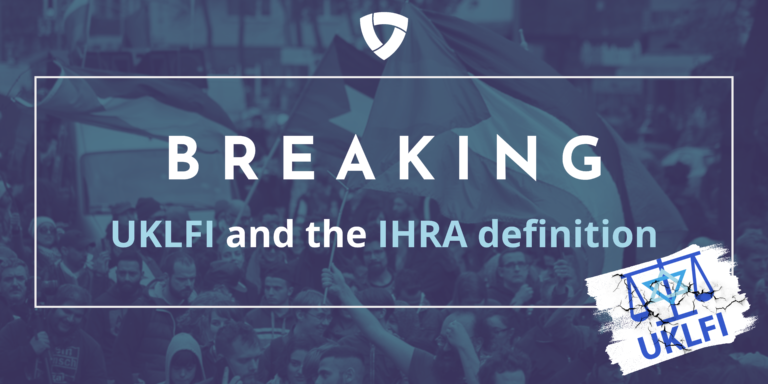Berlin Data Protection Authority Holds RIAS/MBR Accountable for Violating Dr. Younes’ Data Rights
On 16 May 2022, the Berlin Data Protection Authority (DPA) decided in favour of Dr. Anna Younes and issued a warning against VDK, representing RIAS Berlin and MBR. The two organisations had prepared a secret dossier on Dr. Younes, which aimed at identifying “her positions on Israel and BDS”. The dossier also framed her as supporter of terrorism, sexism and anti-Jewish racism and resulted in her disinvitation from a public event on anti-racism organised by Die Linke in November 2019. Furthermore, the DPA rejected RIAS/MBR’s claim and stated that they “did not have a serious scientific purpose” nor a journalistic one when preparing this dossier. After almost two years, the DPA finally found RIAS/MBR violated European data protection law (GDPR) and recognised Dr. Younes’ basic data rights as a German citizen. Further legal action will be taken.
Nearly two years after Dr. Younes filed a complaint to the Berlin Data Protection Authority (DPA), the DPA issued a final decision on RIAS/MBR’s duty to provide access to her data. This decision follows a months-long public media campaign as well as a lawsuit brought against the DPA for its inactivity, both designed to expedite the legal process and obtain reparation for the damage inflicted on Dr. Younes. This decision also comes after a first victory for Dr. Younes in the beginning of May 2022, as a district court ruled in her favour and RIAS/MBR disclosed a part of the information they collected on her – namely, the dossier, which had been leaked to Dr. Younes. RIAS/MBR state in their answer to the DPA that they collected information on Dr. Younes in order to “identify her positions on Israel and BDS”.
The DPA’s decision finally upheld Dr. Younes’ right to obtain access to the personal data collected by RIAS/MBR as ensured by European and German data protection law. In so doing, it rejected RIAS/MBR’s claims that the covert data gathering and sharing pursued journalistic and research purposes, which would have entitled the organisations to an exemption from providing this information.
Indeed, the DPA found that RIAS/MBR failed to follow a scientific methodology and limited itself to creating a “compilation of publicly accessible facts without deriving any new findings on them”. The DPA further rejected the invocation of a journalistic privilege, considering that the dossier was “explicitly not intended for publication and thus cannot represent an indirect contribution to the formation of public opinion”.
For these reasons, the DPA held that RIAS/MBR had violated article 15(1) of the GDPR on the right of access by the data subject. In this regard, Dr. Younes and the ELSC welcome the DPA’s decision.
Nonetheless, the DPA deemed that the framing of the data and its private transmission of the dossier to Die Linke was lawful, without explaining the grounds for said surveillance in the first place. Nor did this decision take into consideration Dr. Younes’ right to reputation, to not be misrepresented as having an “Antisemitic attitude”.
After more than two years, it is a relief that the DPA held RIAS/MBR MBR accountable, whose conduct amounts to surveillance. We welcome the DPA’s decision that RIAS/MBR cannot legitimate their conduct on pretences of journalism or an ostensible scientific activity. Nevertheless, we deeply disagree with the DPA that RIAS/MBR’s preparation and transmission of the dossier was legitimate, as this resulted in significant damage to Dr. Younes’ professional and personal reputation and sends a clear message to all Palestinians in Germany. We will appeal the decision.
Giovanni Fassina, Director of the ELSC.
Read more about the case and watch this video
Donate to support the case
Read and sign the support letter
Listen to the podcast featuring Dr Younes, Inna Michaeli and Alice Garcia (Advocacy and Communications Manager at ELSC)
Visual: © ELSC. CC Watermelon Emoji Icon on IconScout







